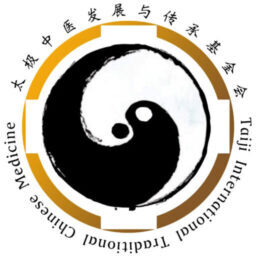Explanation of diagnosis based on meridians and zang-fu organs
Lung
– Signs & Symptoms:
– The lung governs qi, the downward movement, and the skin and hair: Shortness of breath, cough, asthma, frequent colds and flu.
– Dry skin, shoulder and neck pain (pain at the lung shu point, trapezius muscle pain).
– Waking up or dry mouth between 3-5am.
– Mental Health & Personality:
– The lung governs sadness and loneliness: Sadness, grief, loneliness, excessive crying.
Heart
– Signs & Symptoms:
– The heart governs the mind (Shen): Insomnia, excessive dreaming.
– Heart-related: Heart palpitations, irregular heartbeat, heartburn, pain around the heart shu point and shoulder blades.
– Mental Health & Personality:
– The heart governs joy: Happiness, overjoyed, laughing inappropriately.
– The heart governs anger: Irritability, impatience, impulsiveness, anger.
– Warm-hearted and attentive: Frank, passionate, attentive mind.
– The heart governs anxiety, restlessness, and tension: Nervous, anxious, annoyed, scared of needles, making a fuss (nervous + fearful).
– Small-heart: Small-minded, jealous.
– The tongue is the orifice of the heart: Talkative.
– Stubbornness, obsession with cleanliness: Stubborn, obsessive about cleanliness.
Stomach
– Signs & Symptoms:
– Stomach fire: Hungry easily.
– Stomach distention: Stomach bloating or pain, digestive issues.
– Stomach qi rebellion: Nausea, vomiting, acid reflux.
Liver
– Signs & Symptoms:
– Chest and hypochondriac distention and pain (along the liver meridian), pain along the liver and gallbladder meridians.
– Liver fire, liver qi rebellion: Headache, dizziness, dry, red, and itchy eyes.
– Gynecological/menstrual issues: Menstrual pain, breast distension, irregular menstruation.
– Waking up or dry mouth between 1-3am.
– Mental Health & Personality:
– The liver governs constraint: Stress, depression.
– The liver governs anger: Irritability, anger.
Gallbladder
– Signs & Symptoms:
– Abnormal bile secretion: Digestive issues such as nausea, jaundice, gallstones.
– Waking up between 11pm-1am.
– Mental Health & Personality:
– The gallbladder governs decision-making: Indecisiveness, poor judgment.
– Timidity, easily startled: Timidity, lack of confidence, fright, and fear.
Spleen
– Signs & Symptoms:
– Spleen qi deficiency, spleen yang deficiency: Tiredness, poor appetite, poor digestion, abdominal distension, loose stools, diarrhea.
– The spleen governs the limbs: Weak muscles, easy bruising, not feeling refreshed after sleep.
– The spleen manifests on the lips: Pale lips.
– The spleen governs blood: Excessive menstrual blood flow and other bleeding disorders.
– Mental Health & Personality:
– The spleen governs intention: Lack of confidence.
– The spleen governs thought: Overthinking, skeptical, worried.
Small Intestine
– Signs & Symptoms:
– Lower abdomen – small intestine area: Abdominal pain or bloating.
– Small intestine – stool: Excess heat syndrome: Constipation (pellet-like stools). Deficiency cold syndrome: Loose stool or diarrhea.
– Gynecology/menstrual issues: Pain near the Guanyuan point, cold sensation in the lower abdomen.
Large Intestine
– Signs & Symptoms:
– Large intestine – stool: Excess heat syndrome: Constipation (sausage-shaped, bowel movements every 3-10 days).
– Deficiency cold syndrome: Loose stool or diarrhea.
Kidney
– Signs & Symptoms:
– Kidney – bladder exterior-interior relationship: Frequent urination, urinary incontinence.
– The waist is the residence of the kidneys: Soreness, weakness, or pain of the knees and lower back, cold feet, pain along the kidney and bladder meridians, including at the Shenshu, Yaoyangguan, and Mingmen points.
– The ears are the orifice of the kidneys: Ringing in the ears with a low pitch, hearing loss.
– The hair is the surplus of the kidneys: Premature gray hair, hair loss.
– Feeling sleepy between 9-11pm, not refreshed after sleep.
– Mental Health & Personality:
– The kidney governs fear: Fear, easily startled.
– The kidney governs willpower: Weak willpower, strong willpower.
– The kidney governs essence: Memory confusion, poor concentration, poor memory, poor coordination.
Bladder
– Signs & Symptoms:
– Bladder – urine: Profuse, clear urine, frequent urination, incontinence. Painful urination, difficulty passing urine, gravel or stones in the urine.
Others
– Cold or warm hands:
– Mainly related to the Heart and Lung meridians.
– Cold or warm feet:
– Mainly related to the Spleen, Kidney, and Bladder meridians.
– Sweating:
– Observe the sweating areas or meridian pathways.
– Cold sweat: Deficiency cold syndrome.
– Hot sweat: Excess heat syndrome (profuse sweating) or yin deficiency (mild sweating).
– Skin Disease:
– Observe the affected area of the skin disease or the meridian pathways. Persistent redness that doesn’t fade easily, severe dry stools, constipation, worsened by heat—indicates excess heat syndrome—treat with bowel movements and removing damp-heat.
Use
Niú Huáng Shàng Qīng Piàn
Wǔ Wèi Xiāo Dú Yǐn
Qīng Wèi Huáng Lián Wán
Xiè Wèi Wán
Qīng Fèi Yì Huǒ Wán
Xiè Pí Wán
– If normally fine but red rashes appear after scratching: Wind pathogen—use a modified Guì Zhī Tāng or Xiāo Fēng Sǎn.
– Spleen and kidney deficiency, worsened in a damp-cold environment, cold feet: Cold-damp—Shé Chuáng Zǐ Pattern with spleen-strengthening and kidney-tonifying herbs.
– Bowel Movement:
– Once a day is considered normal.
– Excess heat syndrome: Constipated, dry stools.
– Deficiency cold syndrome: Soft, sticky, water-like stools, with undigested food.
– Gynecology or Period:
– Upper Heat:
– Lung: Grumpy/grief
– Heart Fire: Irritation/anxiety/excessive dreaming
– Stomach Fire: Pimples, hunger
– Liver Stagnation: Depression/stress/breast tenderness
– Differentiating by Meridians:
– Headache / dizziness / hot flushes
– Differentiating by Time:
– Insomnia: 9pm-11pm Migmen fire deficiency, 11pm-1am Gall bladder, 1-3am Liver, 3-5am Lung,
Others:Excessive dreaming&anxiety- Heart,bloating,hungry easily-Stomach
– Lower Cold:
– Primarily due to spleen and kidney deficiency: Swollen legs or feet, fatigue, cold lower limbs, lower abdomen pain or cold, lower back pain or cold, frequent urination.
